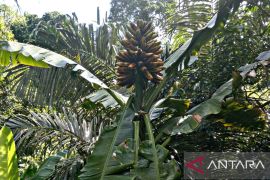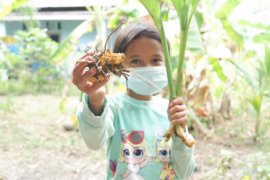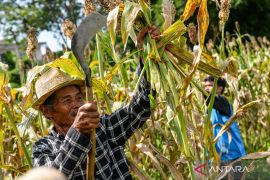"We will continue to research local foods until food diversification is achieved. (The research is conducted) to increase the food's nutritional and economic value as well as an effort to reduce wheat imports," BRIN's Agriculture and Food Research Organisation Head Puji Lestari noted in her statement here on Monday.
Lestari noted that the Organisation's Food Technology and Process Research Centre continues to explore non-wheat and domestic materials for the noodle ingredients to reduce wheat imports.
Corn, sago, and modified cassava flour are among the domestic foods explored as noodle ingredients by BRIN researchers, she stated.
Meanwhile, BRIN's plant-based functional food technology researcher R. Cecep Erwan highlighted the popularity of wheat-based noodles owing to their elasticity due to the gluten content.
The current challenge in the research is to create a noodle with local ingredients that can be accepted by the market, he revealed.
The BRIN has researched the potential of elephant foot yam (Amorphophallus paeoniifolius) as a noodle ingredient, Erwan remarked, adding that the yam undergoes the heat moisture treatment (HMT) modification technique by heating it above the gelatinisation temperature of 80-120 degrees Celsius, with water content lower than 35 percent.
Related news: BRIN's research facilities to bolster development of halal products
"The elephant foot yam starch is processed by the HMT modification technique to change the psycho-chemical and functional aspects as well as characteristics of elephant foot yam starch paste as ingredients of the noodle," the researcher stated.
Moreover, fellow BRIN researcher Alit Pangestu also developed sago-based noodles. Indonesia has high potential to develop sago-based noodles, as the country has 5.5 million hectares of sago fields, he pointed out.
"The plus point of sago is that (it) has similar characteristics as flour and is gluten-free, so it is more healthy and nutritious," Pangestu explained.
He noted that from the research, the national industry has mass-produced Sago Mee, the first Indonesia-made sago-based noodles sold in markets.
Related news: Technology can help prevent food loss, build resiliency: BRIN
Translator: Martha HS, Nabil Ihsan
Editor: Rahmad Nasution
Copyright © ANTARA 2022












